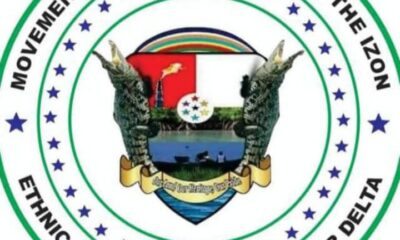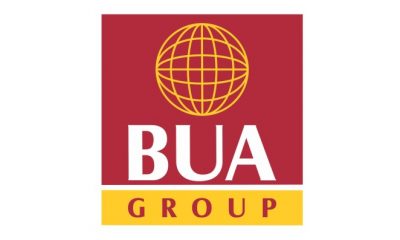Oil & Energy
Abuja DISCO To Establish Customer Call Centre
The Abuja Electricity
Distribution Company (AEDC) has said it would soon establish a call centre to deal with consumer related issues as part of efforts to improve its service delivery.
The Managing Director of AEDC, Mr Neil Croucher, said this last Thursday in Abuja, when he led some management staff of the company on a courtesy visit to the Nigerian Electricity Regulatory Commission (NERC).
Croucher said that the company was in the process of rebranding and overhauling its operations in line with international best practice.
A management staff of AEDC, who is also the Managing Director of CEC, Africa, a Pan African Power Assets Developer, Mr Michael Tarney, said that CEC Africa was partnering with the United Bank of Africa to finance AEDC to make AEDC a world class company.
According to Tarney, the Abuja DISCO is currently operating at a loss due to gas constraints.
He said that the company had put in place machinery to improve on its revenue collection and reduce losses as a result of illegal connection.
CEC, Africa, which focuses on transmission, thermal generation, hydro and renewable energy, is also a major shareholder of AEDC.
In his remarks, the Chairman of NERC, Dr Sam Amadi, described the involvement of UBA to provide credit facility to the Abuja DISCO as highly commendable.
Amadi said that as AEDC was making efforts to improve on its cash collection and revenue, it should also make sure that part of the money was channelled toward effective metering. He added that NERC would continue to ensure a fair tariff regime.
“Metering needs to be improved upon because it will enhance data gathering and revenue collection,’’ he said.
Amadi advised that the company’s sub-stations should be properly fenced to stem the activities of vandals.
Oil & Energy
FG Explains Sulphur Content Review In Diesel Production
The Federal Government has offered explanation with regard to recent changes to fuel sulphur content standards for diesel.
The Government said the change was part of a regional harmonisation effort, not a relaxation of regulations for local refineries.
The Chief Executive, Nigerian Midstream and Downstream Petroleum Regulatory Authority (NMDPRA), Farouk Ahmed, told newsmen that the move was only adhering to a 2020 decision by the Economic Community of West African States (ECOWAS) which mandated a gradual shift to cleaner fuels across the region.
Ahmed said the new limits comply with the decision by ECOWAS that mandated stricter fuel specifications, with enforcement starting in January 2021 for non-ECOWAS imports and January 2025 for ECOWAS refineries.
“We are merely implementing the ECOWAS decision adopted in 2020. So, a local refinery with a 650 ppm sulphur in its product is permissible and safe under the ECOWAS rule until January next year where a uniform standard would apply to both the locally refined and imported products outside West Africa”, Ahmed said.
He said importers were notified of the progressive reduction in allowable sulphur content, reaching 200 ppm this month from 300 ppm in February, well before the giant Dangote refinery began supplying diesel.
Recall that an S&P Global report, last week, noted a significant shift in the West African fuel market after Nigeria altered its maximum diesel sulphur content from 200 parts per million (ppm) to around 650 ppm, sparking concerns it might be lowering its standards to accommodate domestically produced diesel which exceeds the 200 ppm cap.
High sulphur content in fuels can damage engines and contribute to air pollution. Nevertheless, the ECOWAS rule currently allows locally produced fuel to have a higher sulphur content until January 2025.
At that point, a uniform standard of below 5 ppm will apply to both domestic refining and imports from outside West Africa.
Importers were previously permitted to bring in diesel with a sulphur content between 1,500 ppm and 3,000 ppm.
It would be noted that the shift to cleaner fuels aligns with global environmental efforts and ensures a level playing field for regional refiners.
Oil & Energy
PHED Implements April 2024 Supplementary Order To MYTO
The Port Harcourt Electricity Distribution (PHED) plc says it has commenced implementation of the April 2024 Supplementary Order to the MYTO in its franchise area while assuring customers of improved service delivery.
The Supplementary order, which took effect on April 3, 2024, emphasizes provisions of the MYTO applicable to customers on the Band A segment taking into consideration other favorable obligations by the service provider to Band A customers.
The Head, Corporate Communications of the company, Olubukola Ilvebare, revealed that under the new tariff regime, customers on Band A Feeders who typically receive a minimum supply of power for 20hours per day, would now be obliged to pay N225/kwh.
“According to the Order, this new tariff is modeled to cushion the effects of recent shifts in key economic indices such as inflation rates, foreign exchange rates, gas prices, as well as enable improved delivery of other responsibilities across the value chain which impact operational efficiencies and ability to reliably supply power to esteemed customers.
“PHED assures Band A customers of full compliance with the objectives of the new tariff order”, he stated.
Ilvebare also said the management team was committed to delivering of optimal and quality services in this cost reflective dispensation.
The PHED further informed its esteemed customers on the other service Bands of B, C D & E, that their tariff remains unchanged, adding that the recently implemented supplementary order was only APPLICABLE to customers on Band A Feeders.
Oil & Energy
PH Refinery: NNPCL Signs Agreement For 100,000bpd-Capacity Facility Construction

The Nigerian National Petroleum Company Ltd (NNPCL) has announced the signing of an agreement with African Refinery for a share subscription agreement with Port-Harcourt Refinery.
The agreement would see the co-location of a 100,000bpd refinery within the Port-Harcourt Refinery complex.
This was disclosed in a press statement on the company’s official X handle detailing the nitty-gritty of the deal.
According to the NNPCL, the new refinery, when operational, would produce PMS, AGO, ATK, LPG for both the local and international markets.
It stated, “NNPC Limited’s moves to boost local refining capacity witnessed a boost today with the signing of share subscription agreement between NNPC Limited and African Refinery Port Harcourt Limited for the co-location of a 100,000bpd capacity refinery within the PHRC complex.
“The signing of the agreement is a significant step towards setting in motion the process of building a new refinery which, when fully operational, will supply PMS, AGO, ATK, LPG, and other petroleum products to the local and international markets and provide employment opportunities for Nigerians.
By: Lady Godknows Ogbulu
-
News3 days ago
Telcoms Seek Tariff Hike To Offset Soaring Costs
-
Nation3 days ago
Ogun PDP Chairman, Adebutu Trade Blames Over Electoral Defeat
-

 Rivers12 hours ago
Rivers12 hours agoNDDC Board Performance Is A Launch Pad For Tinubu 2027 – Says MOSIEND …Says No Vacancy In Aso Rock
-

 Niger Delta9 hours ago
Niger Delta9 hours agoDiri, Others Task NDDC, MNDD On Collaboration …As Tinubu Promises East-West Road Completion
-
Niger Delta3 days ago
PIA: Bayelsa Ready For Littoral Communities’ Mapping Exercise
-

 Business3 days ago
Business3 days agoRetailers Explain Price Drop In Cement Cost
-

 Foreign12 hours ago
Foreign12 hours agoIraqi Social Media Influencer Um Fahad Shot Dead By Motorbike Gunman In Baghdad
-
Oil & Energy9 hours ago
PHED Implements April 2024 Supplementary Order To MYTO

